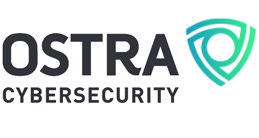Data Privacy Isn’t a Luxury; It’s a Necessity
Let’s Get Real About Data Privacy
As a Gen Xer, I remember growing up in a time when your privacy was your business. People didn’t know where you were unless you told them, and “data sharing” meant borrowing a library book.
Fast-forward to today, where every app on your phone wants to know what you’re doing, where you’re going, and sometimes even what you’re thinking. It’s an understatement to say things have changed—but what hasn’t changed is the need to guard your privacy.
Data privacy isn’t some abstract tech buzzword. It’s your *life*, packaged into ones and zeros, sold to the highest bidder, or worse, left exposed for hackers to grab. And it all starts with understanding how your personal information is being used, shared, and sometimes abused.
Read the Fine Print
Here’s the unvarnished truth: those “Agree” buttons you click without reading? They matter. App developers, social platforms, and even some “free” email providers thrive on the assumption that you’ll blindly accept their terms. That’s how your location, browsing habits, shopping history, and even private conversations end up in places you never intended.
I’ll admit it—reading privacy and data use policies isn’t exactly thrilling. They’re often long, jargon-heavy, and designed to test your patience. But if you’re not reading them, you’re essentially handing over a blank check to your personal data. And once it’s out there, getting it back? Good luck.
Parenting in the Age of Privacy Threats
As a founder of a cybersecurity company, I know all too well what can happen when data privacy is compromised. That’s why, in my house, data privacy is part of parenting.
When my two teenage sons decided they *had* to have Snapchat, they weren’t just handed a green light. Instead, I gave them homework: they had to read and understand Snapchat’s privacy and data use
policies before the app made it onto their phones.
I’ll never forget watching them sift through the legalese. “Wait,” one of them said, “so they can collect location data even if the app isn’t open?” Bingo. That’s the kind of stuff buried deep in the details.
By the time they’d finished, they didn’t just understand how Snapchat uses their data—they also knew the risks of oversharing and the importance of privacy settings. It wasn’t just a lesson about a single app; it was a life lesson.
Simple Steps to Protect Yourself
So, what can you do? Here are a few friendly tips to keep your data where it belongs:
1. Read Before You Agree
Yes, it’s boring. Yes, it’s worth it. Even skimming the key sections about data sharing and permissions can give you a clearer picture of what you’re signing up for.
2. Lock Down Permissions
Many apps request more access than they actually need. Does that flashlight app really need to know your location? (Hint: it doesn’t.) Adjust your app permissions in your phone’s settings.
3. Use Privacy-Focused Tools
There are plenty of apps and browsers designed with privacy in mind. DuckDuckGo for search and Signal for messaging are great places to start.
4. Talk About It
Whether it’s with your kids, your spouse, or your coworkers, bring data privacy into your conversations. The more aware people are, the less likely they are to make careless mistakes.
5. Keep It Updated
Software updates often include important security patches. Don’t ignore them; they’re your first line of defense against known vulnerabilities.
Why It Matters
Privacy isn’t just a personal preference—it’s a right. And in today’s digital world, where companies (and criminals) profit from mining your life for data, protecting that right takes effort.
The good news? A little vigilance goes a long way. Take it from someone who’s seen what happens when privacy is ignored: it’s easier to prevent problems now than to fix them later. Whether it’s your phone, your kids, or your business, make data privacy a priority. Because in the end, if you don’t take control of your privacy, someone else will.
Contact us to learn more about what it means to be powered by Ostra Cybersecurity.
Michael Kennedy is the founder of Ostra Cybersecurity, a multi-layered and fully managed Security as a Service. Recognized as a cybersecurity industry trailblazer, he is a dynamic leader, speaker, and fierce advocate for data privacy.




